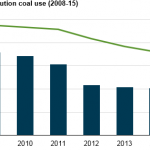higher education
A lot of higher education institutions are old, and back in the day, things were different. Not only were most schools simultaneously on top of and on the bottom of great snow covered hills, but they were often surrounded by nearly medieval settlement, or at least, pre-industrial ones, that lacked things like central heat, electricity, and so on, even after these things became common and normal.
I remember the legacy of this reality at my Alma Mater, a small university in Cambridge, Mass. Most of the campus had its own heating system, which was built at a time when centrally distributed…
Five years ago I blogged about a study by the Swedish National Agency for Higher Education, identifying the higher education degrees that were likely to give you the best chances of a Swedish job in the period 2010-2020. This was because I complain a lot here on the blog about how useless a degree in anything even remotely similar to archaeology is, and I wanted to say something positive for a change. The careers that looked promising in 2010 were in lower-paying positions in healthcare, education and tech.
Now the Swedish Public Employment Service has published a similar study of what…
tags: education, academic achievement, university, college, Crossing the Finish Line: Completing College at America's Public Universities, William G. Bowen, Matthew M. Chingos, Michael S. McPherson, book review
The second book review I've ever published in Nature Magazine appeared last week, roughly the same time I was on a trans-Atlantic flight from NYC to Frankfurt, Germany. Due to my lack of wireless and jet lag, I've neglected to mention this until now. This review discusses a book that I think is very important for everyone involved in higher education to read and think about: Crossing…
And I'm not talking about new building projects such as the Bell Museum, though such projects certainly are shovel ready as well.
I'm speaking about the simple fact that funding higher education, mainly by funding students, is one of the best possible ways to stimulate the economy.
The American workforce is under educated and under trained. This is almost always true to some extent, but in times when the centers of gravity in industry and business are shifting, it becomes even more true. The simple fact that the nature of the job market has changed dramatically over the last 20 years…
tags: academe, professor on food stamps, academic poverty, streaming video
I thought my employment situation was solely due to some mysterious and horrible flaw that is obvious to everyone except me, but here is a man who has the same complaints and problems, almost word-for-word as I have, except he actually managed to get tenure -- after ten years of living in poverty in the academic system. However, I doubt I will be so lucky as to get a tenure-track position (provided that I manage to survive that long)! [5:17]
Like this guy, I was also told not to take money from the public coffers (in…
